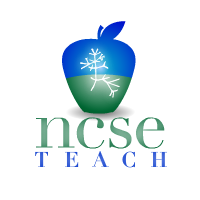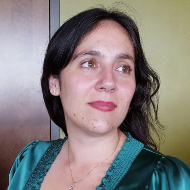We’ve been developing some new initiatives at NCSE to try and better serve teachers. After all, teachers are ultimately going to make the difference if the next generation is to get an evidence-based science education. Th e Booster Club Project and NCSETeach are both big, multi-pronged approaches that we hope will support and encourage science education in communities, as well as give teachers tools to improve education in their classroom. But if we want to help teachers, shouldn’t we be asking them for ideas, rather than assuming we know what they need?
e Booster Club Project and NCSETeach are both big, multi-pronged approaches that we hope will support and encourage science education in communities, as well as give teachers tools to improve education in their classroom. But if we want to help teachers, shouldn’t we be asking them for ideas, rather than assuming we know what they need?
So that’s what we did! NCSE's Minda Berbeco and I developed a survey that we sent out to teachers through NCSETeach a few months ago, and we thought we’d share our early results with you. Let us know if this information rings true for you or your community.
In this survey to teachers nationwide, we asked questions in three major categories: what groups teachers think are supporting them, what kinds of support teachers want in their classrooms, and what concerns teachers have about receiving support through NCSE programs. We also collected demographic data about teachers and their schools, such as if their community is rural or urban, what percentage of their students are eligible for free or reduced-fee lunch, and what percentage of their students have individualized education plans.
We thought teachers might want different kinds of support depending on these variables. For example, 20% of responding teachers work at schools where over 75% of their students qualify for free and reduced-fee lunch, a reliable marker of regional poverty. Over half of the total respondents work at schools where 50% of the students qualify for free and reduced-fee lunch. When you consider the state of education in America, this type of information is important. It's easy to forget how many children in American schools struggle with basic needs, such as food security, that can make a teacher's job even harder.
Although we found demographic variability in our survey, these differences did not really affect the types of support teachers perceive or want. This is definitely useful information to have as NCSE develops national programs. The only real differences we saw were related to perceptions of community support. According to our data, teachers in rural areas feel strongly supported by their students’ parents, while urban teachers perceive a little less parental support. And interestingly, while it appears that virtually all teachers dislike state politicians, rural teachers dislike them slightly less than their suburban or urban counterparts.
We also found that teachers get support from many groups, including their students, their school administration, national educational societies, and especially their fellow teachers. However, most teachers don’t see their work as being strongly supported by their communities. At NCSE, we believe that community support for science education is crucial to ensure an environment where teachers can teach good science. We hope the Booster Club Project will increase community support for teachers.
When we asked what type of support teachers would like from Booster Club programs, the responses were very consistent. Teachers want everything from help with field trips to classroom visits from scientists. Two things they want the most: money for lab equipment and support for conference travel. This is exactly what we've been hearing from teachers at our pilot Booster Club site.
Surveyed teachers are a little concerned about receiving support from Booster Clubs. But their big worry is that they won’t have the time to implement anything new in their classrooms, or that outsiders are going to tell them what to do. A pointed reminder that we must be respectful of teachers. Teachers do hard and skillful work on the ground, and have a good idea of what will work for their students and their community when it comes to practical educational concerns.
We'll continue to use these survey results—and future survey findings—to guide the development of our teacher-serving programs at NCSE.

